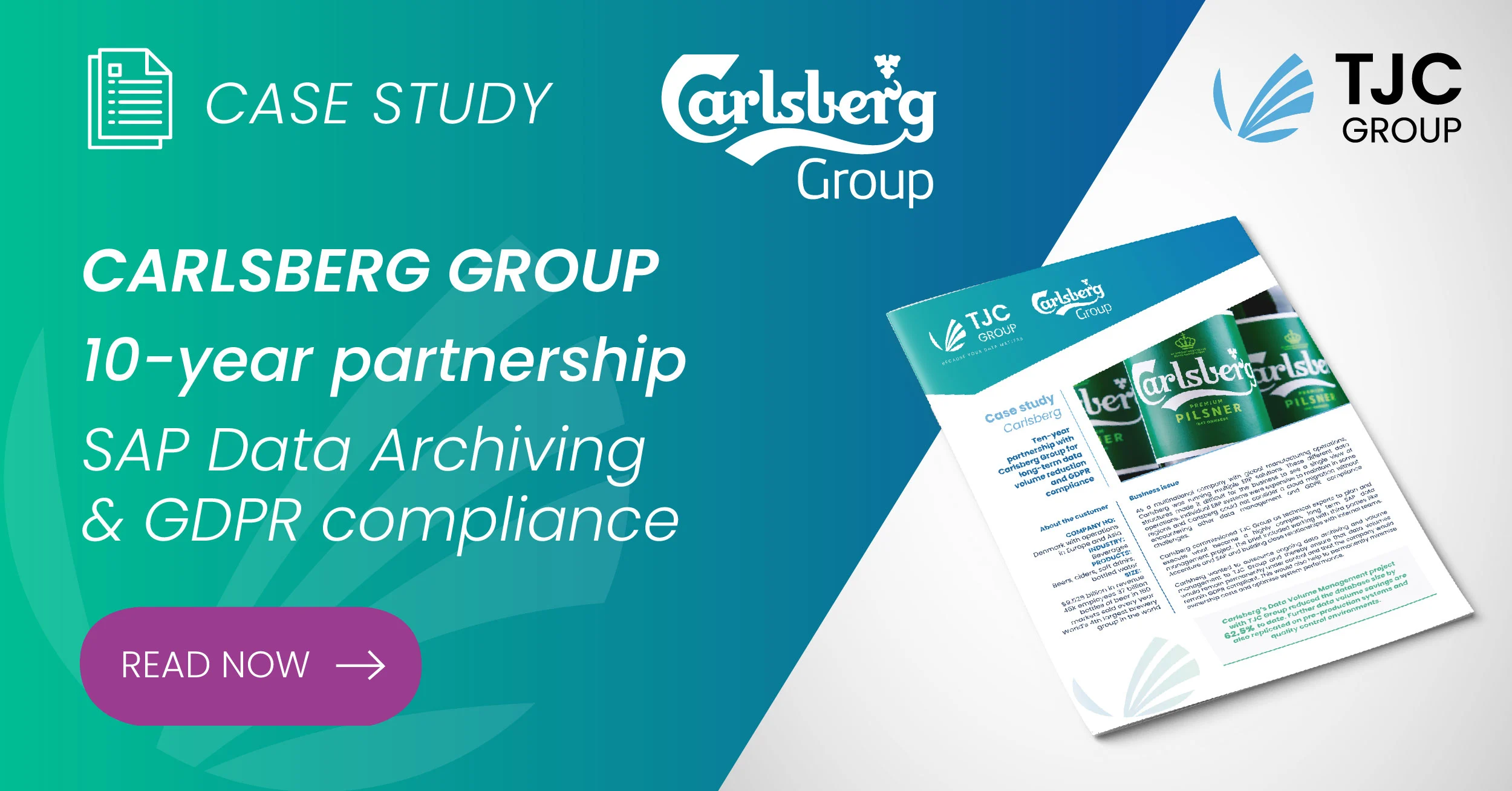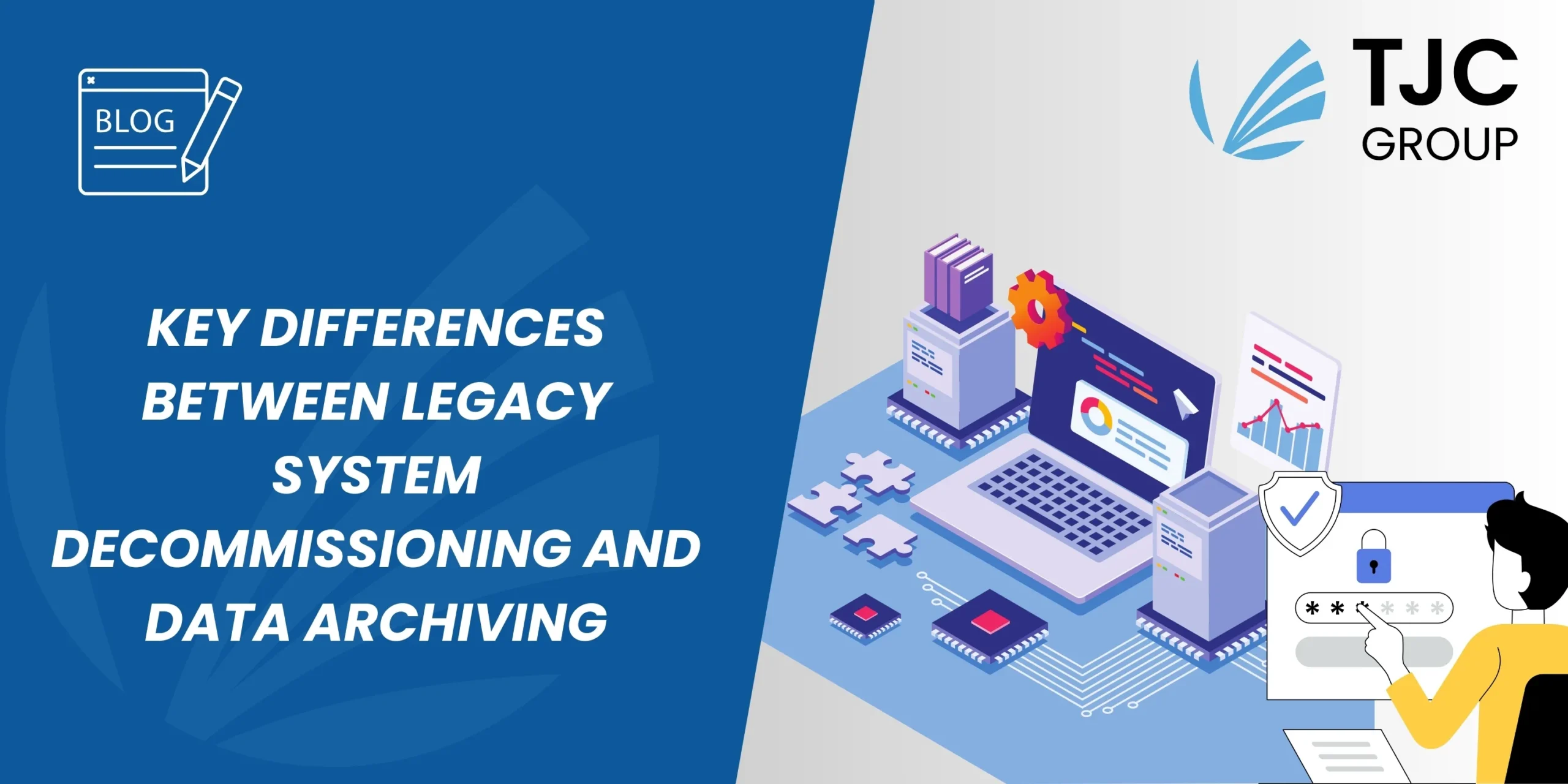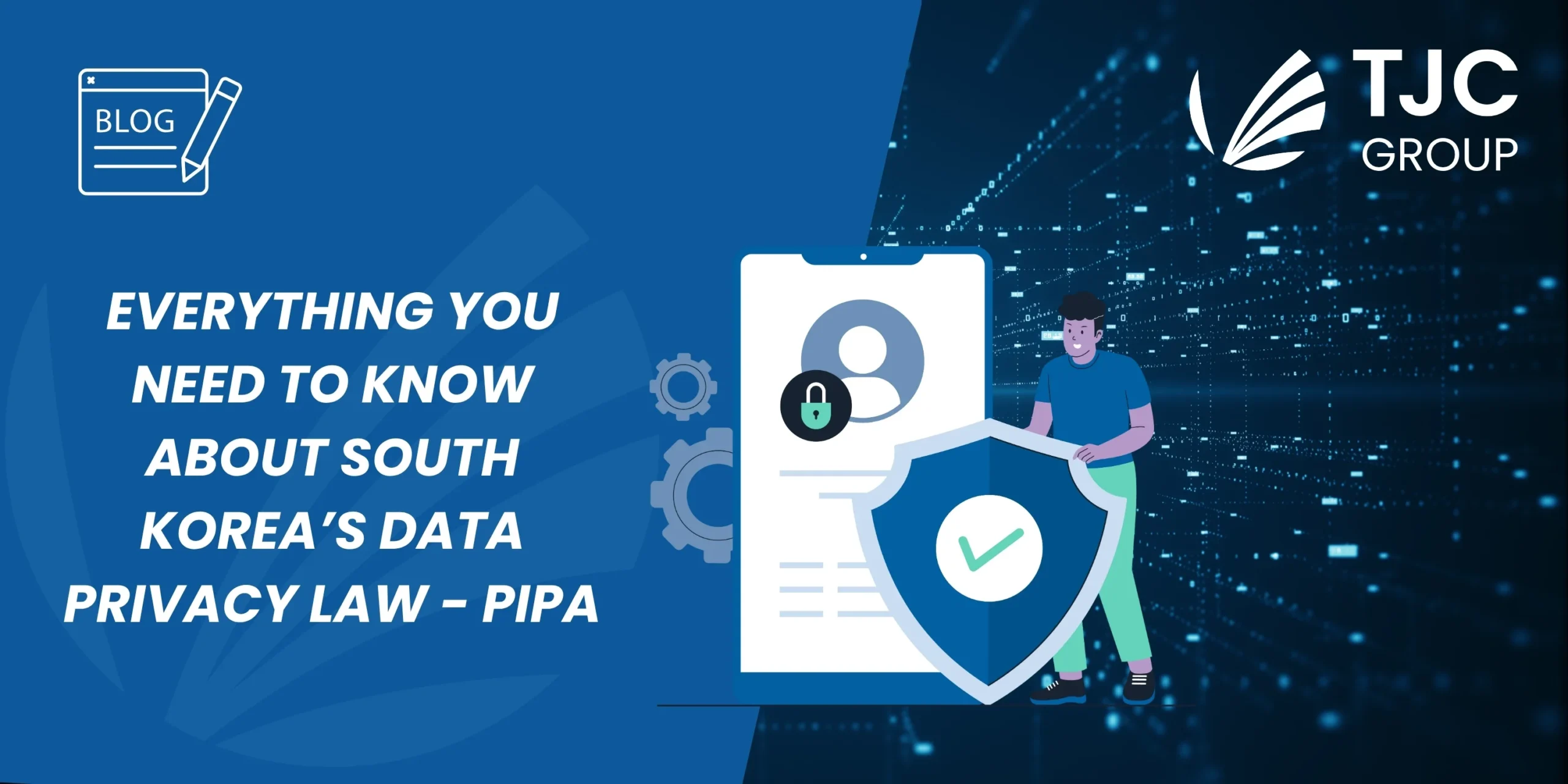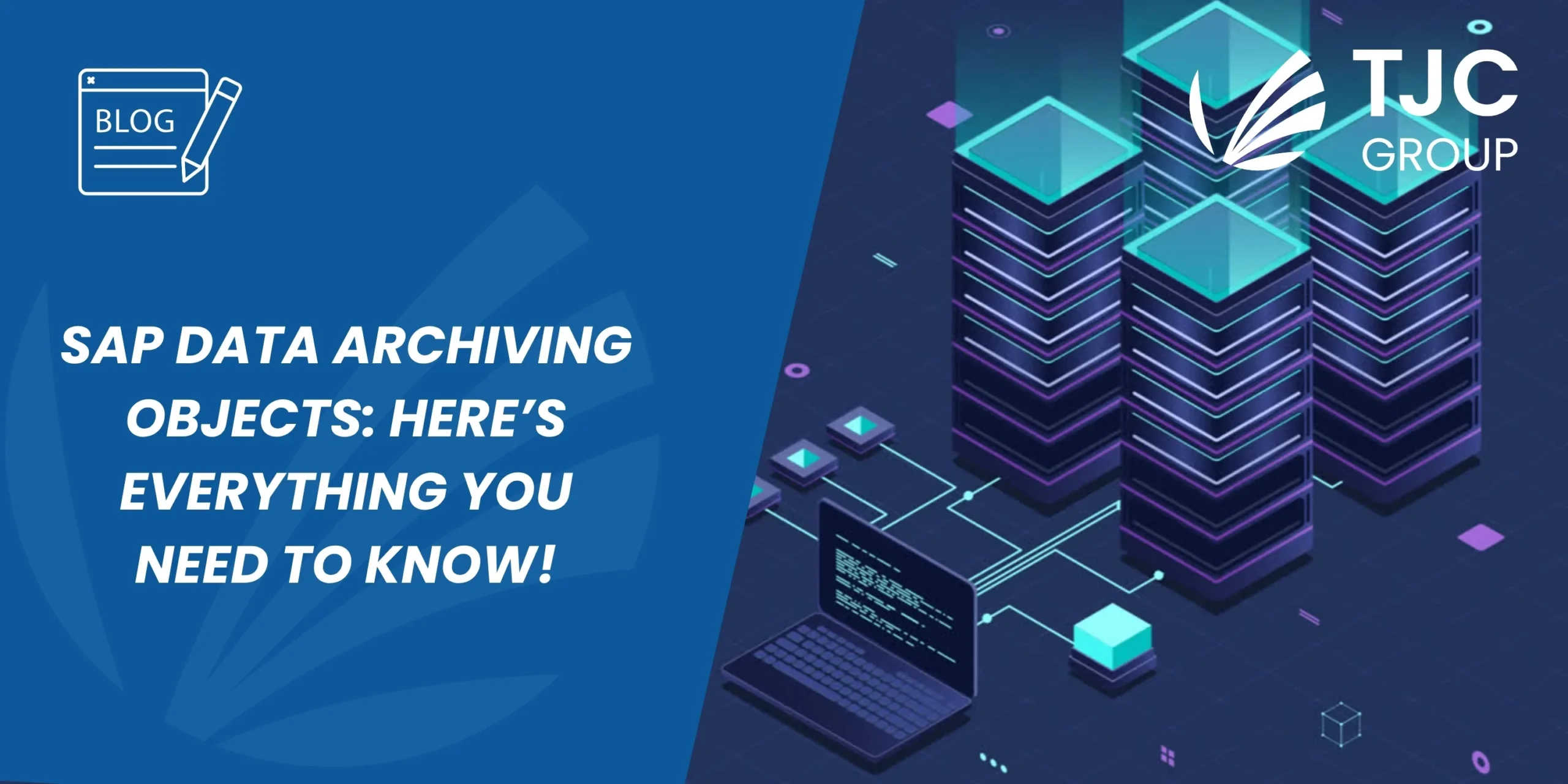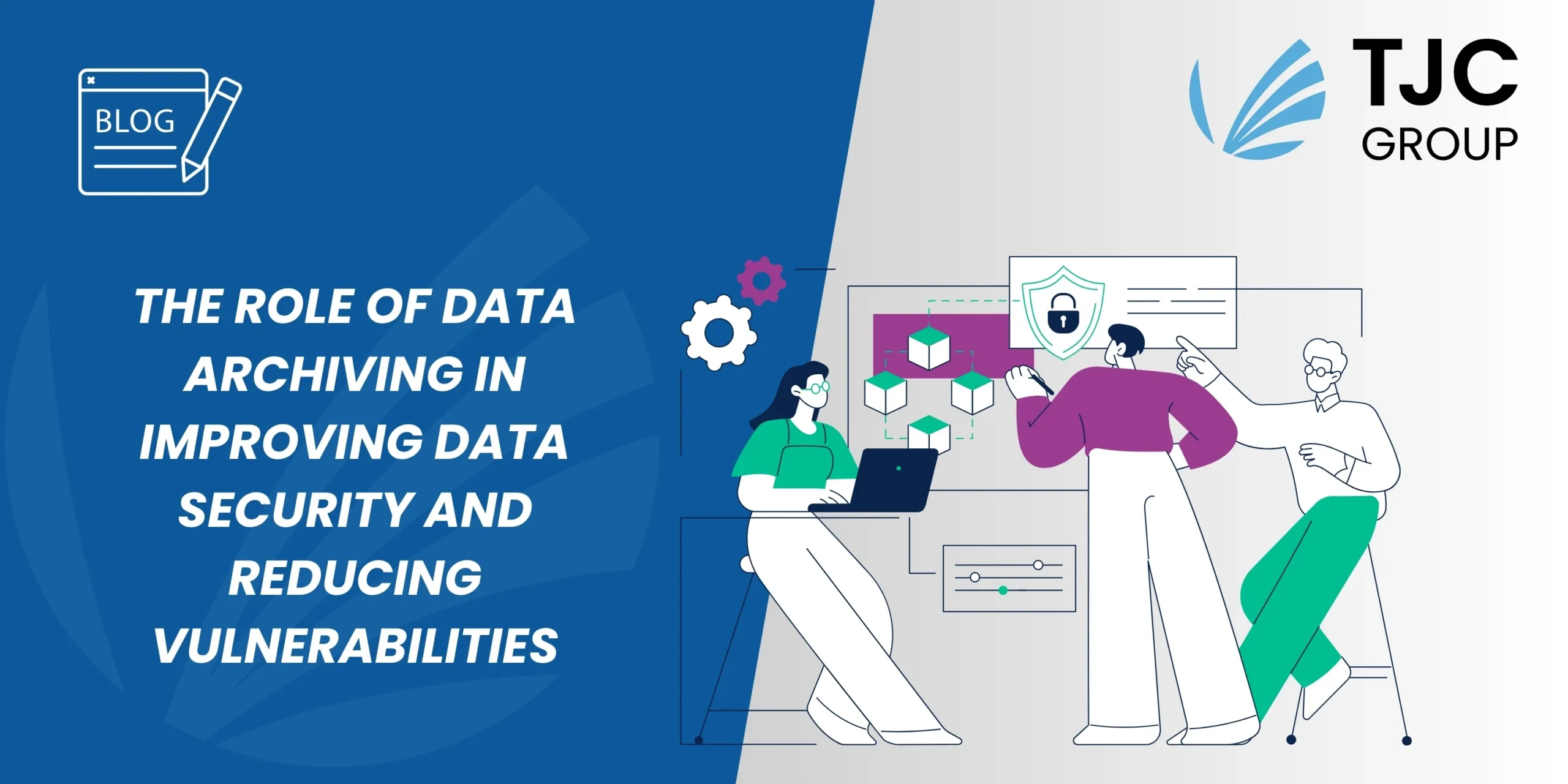Author: Priyasha Purkayastha, Global Content Manager, TJC Group
Did you know that the global data creation by 2028 is estimated to be around 394 zettabytes? As per Statista’s latest report, data growth is more rapid than ever. Along with this, the storage capacity is also expected to grow, but can you imagine the cost of maintaining the data? In fact, most data kept by the organisations are inactive/historical, and kept only for audit and legal purposes. So instead of keeping the data in a live system, why not adapt the process of data archiving and move it to a secondary database? If you want to know what’s so special about archiving, here are the top benefits of SAP data archiving that will definitely intrigue you into adapting it.
Introduction
The growth of data is inevitable, and quite frankly, unstoppable. It is set to grow more in the coming years. However, managing and maintaining this growing amount of data is quintessentially crucial. Fortunately, SAP data archiving is the right way to go about it. Archiving, in simple words, means to store inactive but important historical data in a separate storage location rather than keeping it in the main system. Often it is asked why data archiving is important for organisations, and there is a plethora of answers to this. However, one of the most sought-after answers would be – the optimised system performance. Additionally, there are several other benefits of SAP data archiving that we will talk about in the later sections of the blog. Before we dive into that, let us learn a little more about data archiving, shall we?
A brief synopsis of data archiving
As you know, data growth is happening at a rapid pace, and it will continue to grow. With more data comes the responsibility of managing them securely and effectively. That’s where your SAP data archiving comes into the picture. Overall, data archiving is a strategic approach that enables organisations to manage their data volume seamlessly. There are several technologies that powers data archiving; in the SAP world, we use the Archive Development Kit (ADK) along with the Archive Administration (transaction SARA) technology.
The nuances of data archiving are pretty fascinating. From the brink of it, archiving may seem like a standard process, but when you take a deep dive, you see the numerous things associated with it. An example of which are the archiving objects. As a matter of fact, archiving objects are one of the most important aspects that you must know of. As SAP defines it, an archiving object will help you specify the data for archiving and how that data must be archived. They also define the database objects, which you must handle together as a single business object.
In this above-mentioned blog, you can learn in-depth about archiving objects, types of archiving, and much more.
Major benefits of SAP data archiving
Not more than often you will get the thought of why data archiving is important, especially in your SAP systems. Interestingly, you will find several reasons that will answer your questions; on the top of the list comes the following –
- Data privacy
- Overall cost reduction
- Reduced TCO
- Improved system performance
- Achieve sustainability goals
However, there are more than just these advantages of data archiving in SAP systems. They are as follows:
Get a more efficient and seamless HANA database
By implementing SAP data archiving for managing data growth, you can leverage a shiny, efficient, and more streamlined HANA database. The process of archiving data helps alleviate database memory and performance issues, which are created due to the significantly large amounts of transaction data. Furthermore, archiving helps in ensuring consistent and quick system response times, which makes the database smoother, more responsive, and competent for users.
Stay on par with compliance regulations
One of the most sought-after benefits of SAP data archiving is that it helps you stay on par with the ever-evolving compliance regulations. Archiving helps organisations meet legal requirements without disrupting any business operations. Basically, data archiving keeps important data alive without having to delete any audit-related or relevant information; thereby, meeting the compliance rules and freeing your organisation from any penalties.
Manage the growth of your database
With the amount of data generated on a daily basis, the size of the database doesn’t get any smaller; it only increases every day. Having said that, keep in mind that the more the data grows, the more storage space will they require. However, expanding this storage capacity is expensive and can lead to disruptions in your organisation’s financial plannings. With SAP data archiving, you can save this money while managing and controlling the growth of your database.
Other key advantages of data archiving in SAP systems
Lower your total cost of ownership
A reason why data archiving is important in SAP systems is that it helps curb the excessive costs associated with storing large amounts of data that are inactive. This, in turn, helps organisations reduce their total cost of ownership.
Compliance with data privacy laws
Another key benefit of archiving is its ability to ensure strict compliance with data privacy laws. Today, with personal data all around us, data protection regulations are more stringent than ever, and rightfully so. Data archiving helps in meeting compliance not just with the data privacy regulations, but also tax and audit requirements. This is done by retaining and deleting any personal information that organisations collect from the users.
Meet your sustainability targets
Sustainability is the need of the hour, and organisations cannot miss out on this aspect of the advancing world. Helping organisations achieve their sustainability targets and lower the digital carbon footprint is truly an amazing benefit of SAP data archiving. As the process helps lower the amounts of data, lesser energy is required for storing it, which reduces the digital carbon emissions.
Why is data archiving important in SAP S/4HANA migration journey?
Preparing data for S/4HANA migration is quintessential but sadly, organisations often overlook this until the migration process starts. Remember that data volume dominates the size of the SAP HANA database, which ultimately affects the memory requirements in SAP S/4HANA. Because of which, having a comprehensive data management strategy is particularly pivotal. Here’s when data archiving, which as a part of data management, comes into the picture.
The two major benefits of SAP data archiving for S/4HANA migration are as follows:
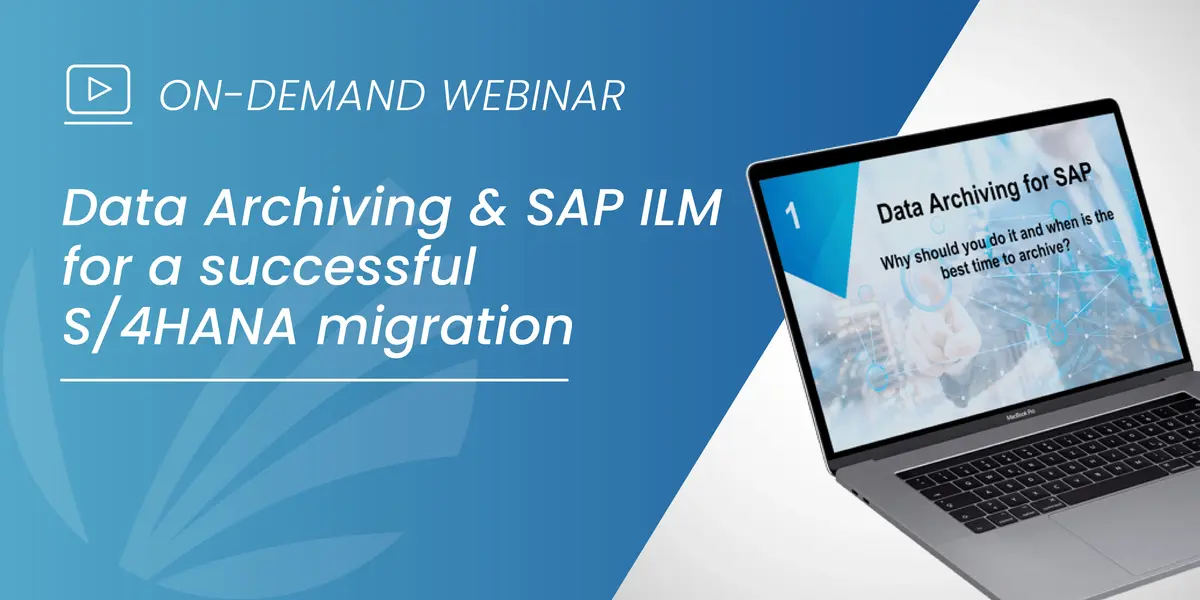
Reduced storage costs
As data archiving limits the growth of the HANA database, the storage costs are automatically bound to reduce. But have you thought how? Well, the catch is to use a decent server as it helps ensure an impeccable data compression ratio. This data compression ratio, thereby, helps in reducing the total storage costs. In fact, this is significant when organisations are migrating from S/4HANA on-premises to S/4HANA cloud. Also, organisations have to keep in mind that once you have migrated to S/4HANA, data growth must be under control to prevent spiralling costs. As surprising as it appears, an unmanaged database can typically grow by 10-15% per year.
Faster overall migration process
With the right-sized database, not only do the storage costs reduce but the overall migration process also becomes much faster. This is another reason why data archiving is important for S/4HANA migration journey. By archiving data that aren’t frequently used or accessed, the load on the main system becomes less. Thereby, you only migrate data that are much needed in your day-to-day business operations.
Choosing the right partner
While the advantages of data archiving in SAP are many, having the right partner by your side will help you maximise these benefits. We, at TJC Group, come with an expertise of 25+ years in the area of SAP data archiving, data preparation for S/4HANA migration, and more. Our vast knowledge of SAP, state-of-the-art technology, easy integration with our very own archiving software ASC, and a team of subject matter experts, help our clients meet their data growth control targets with ease and finesse.
Want to learn more about us? Contact us today to get your data managed for a sustainable future.





